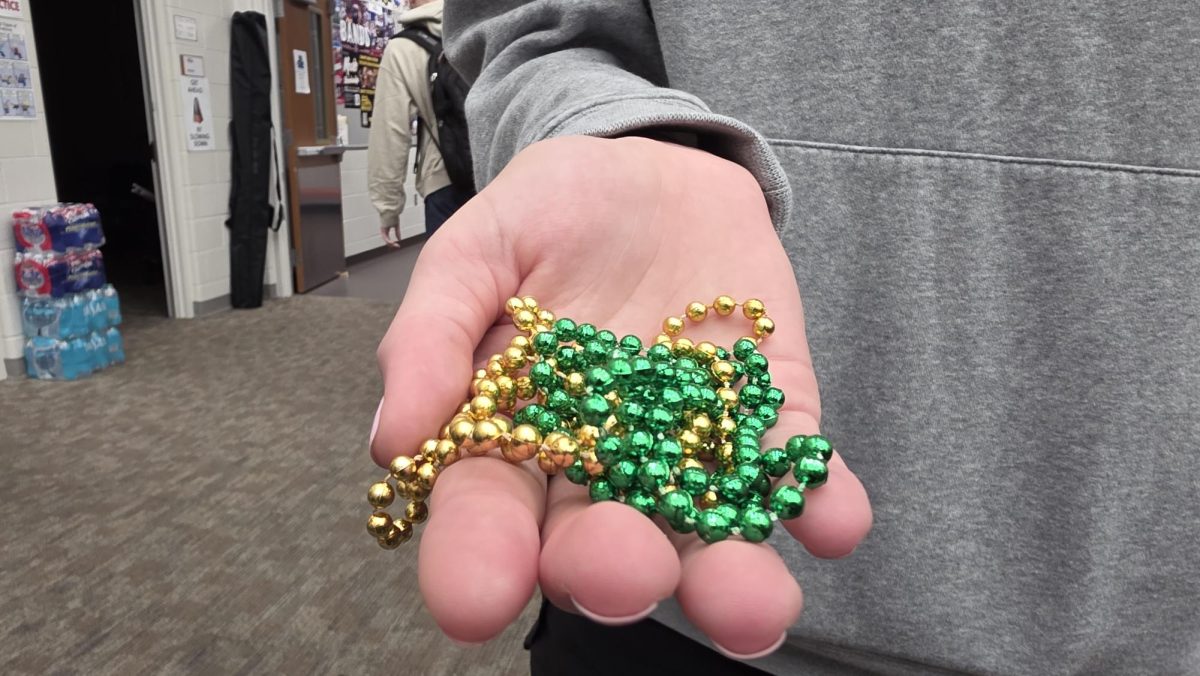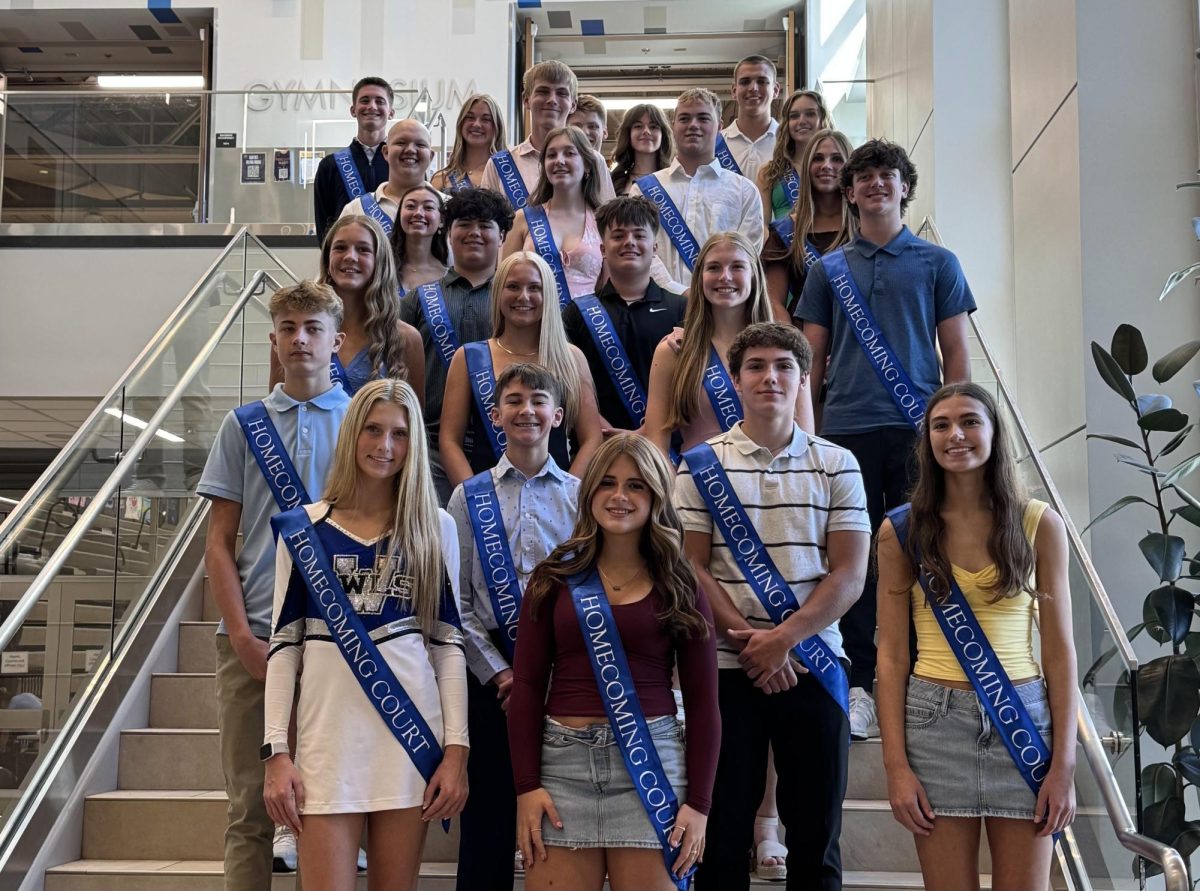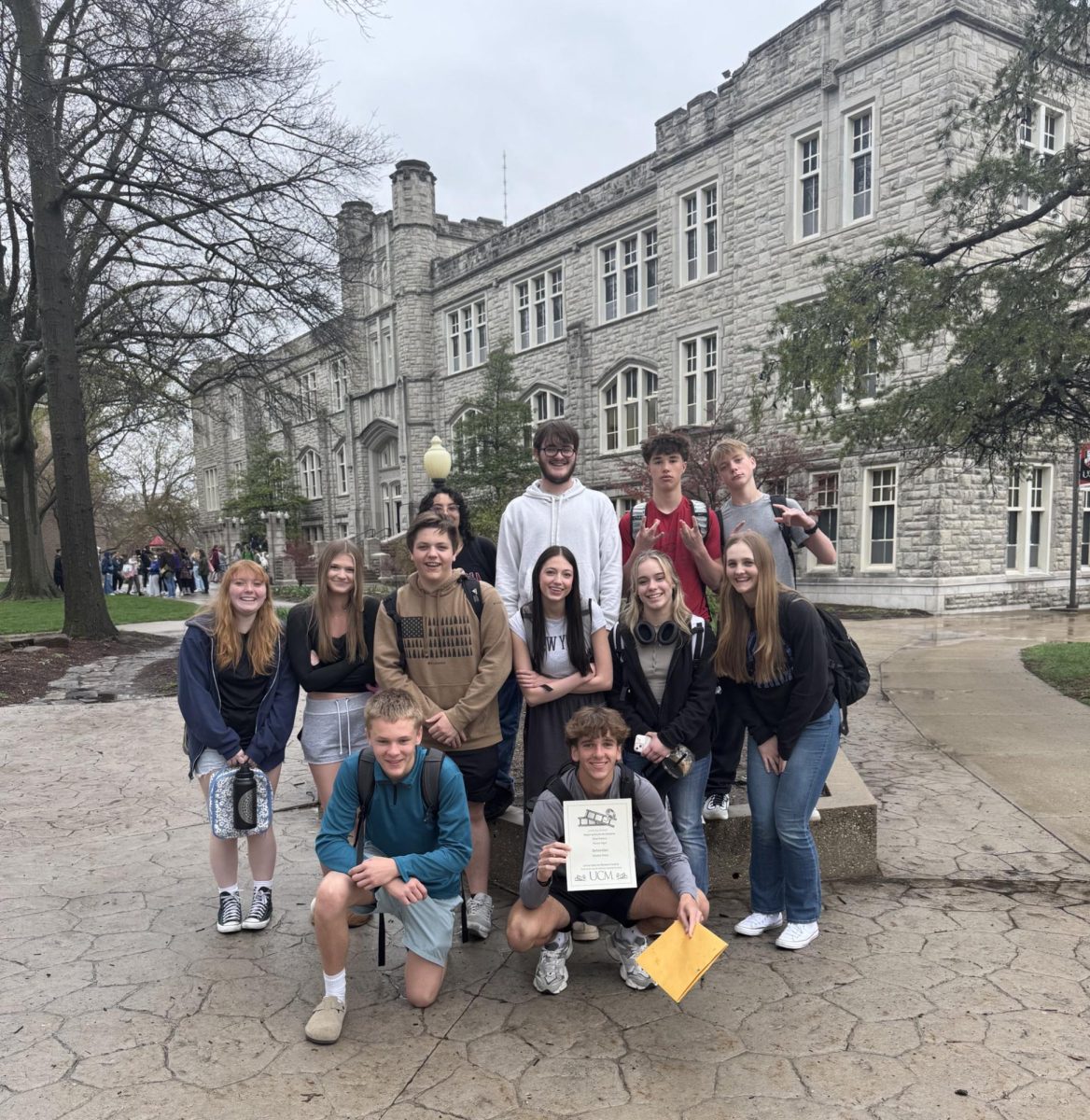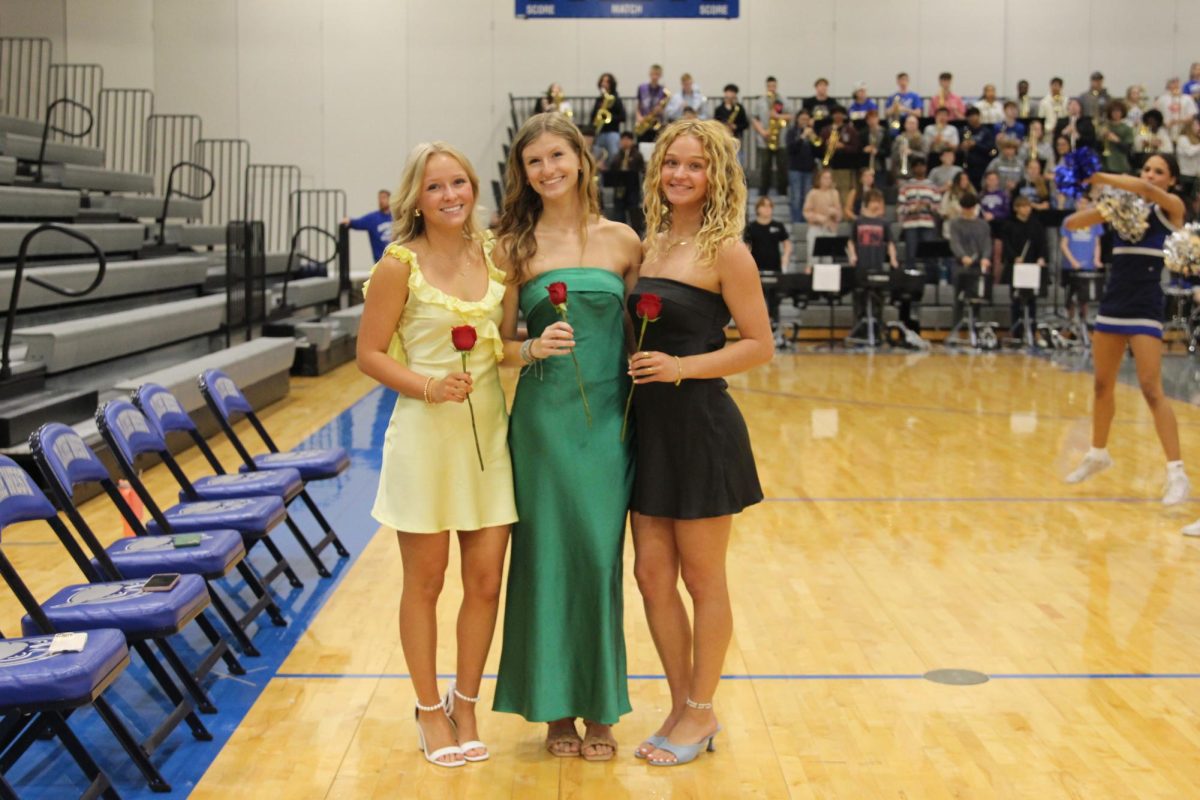Seniors feel all sorts of emotions regarding the upcoming election in November. As we mature into self-sufficient citizens in a modern American society, the responsibility of the future invokes passionate feelings Americans across all ages experience.
There are about 86,000 Johnson County residents ages 18-29, according to the United States Census Bureau. There are roughly 400 seniors in the 2024-25 graduating class, many of which are eligible to vote. Although we compose a very small number of JoCo residents, we still have the power to turn the tide of an election. CIRCLE data shows voting and civic engagement lies around 36 percent for JoCo youth. Regardless of how we feel about voting, it is impossible to deny that our vote makes an impact.
Senior Maliyah Warren feels lucky about being eligible to vote and intends to be part of that statistic in November.
“I feel really lucky. I think it’s a big way to do my part in society. So I think it’s really cool that I get to do that this year and I feel like it’s just a whole other level of growing into adulthood,” Warren said.
Many high school students look forward to voting, and many may not. The truth is, that’s okay. Not everyone’s first time voting is the first chance they had.
Meagan Ruport is a United States Government teacher and Women’s Studies teacher at Olathe West. She reflects on her past experiences regarding high school and voting.
“I was a little bit older. I actually turned 18 the day after a presidential election my senior year. But honestly if it would have been before that I probably still wouldn’t have voted, and wouldn’t have felt informed enough yet, so my first time voting would have been four years after that while I was in college, in a presidential election year,” Ruport said.
It is important that we educate ourselves. But it is equally important that we don’t miseducate ourselves in attempt to do so. High schoolers tend to lean toward social media for their political information.
Senior Kaylie Stone, who is already registered to vote, reflects on how she gets her political information.
“I don’t really watch the news or anything like that. Most [information] comes from what my parents are telling me is going on, or what my friends at school are telling me is going on, or what I see posted on Instagram. I think I stay pretty up-to-date on national politics, but definitely not as much as some other people,” Stone said.
The ways we receive our political information have developed as generations pass on their knowledge to the next one.
Seniors must rise to the challenges of addressing the responsibilities of the future. We must continue educating ourselves and others, and facing our emotions head-on, whether political participation makes us nervous, excited, or a bit luckier than most.
“I remember being in government class, just like I teach now, but not really understanding the importance of it as an individual. I don’t think I took the class [seriously] enough to really feel like I personally would make a change,” Ruport said. “I think that’s one thing I’m striving to attempt to do with our government kids today, is helping them to understand it is really important to be an informed voter and to get out there.”









